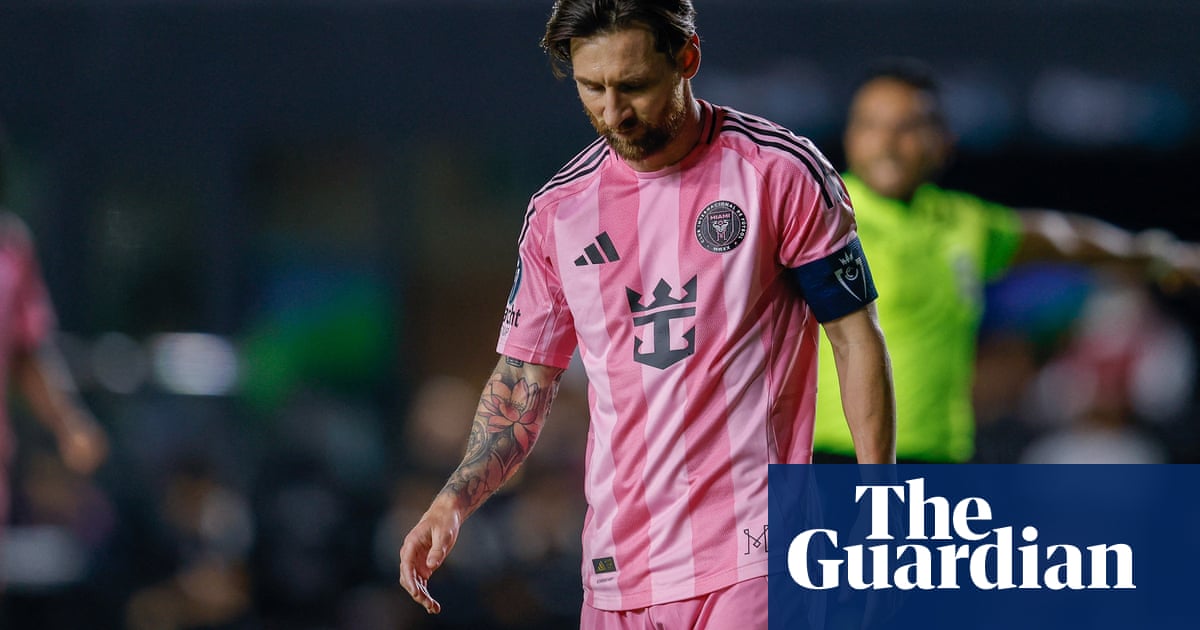Not long ago, the results might have been seismic. Or at the very least, worthy of an eyebrows-raised remark. Lionel Messi andCristiano Ronaldo, the two leading lights of their generation, the dominant on-field forces for most of this century, both going out of continental competition in the semi-finals? Both in upsets? On the same day?
On Wednesday, it actually happened. Messi’s Inter Miamifell to Vancouver 5-1 on aggregatein the Concacaf Champions Cup, and Ronaldo’s Al-Nassr lost 3-2 to Kawasaki Frontale in the AFC Champions League Elite at a nominally neutral site in Saudi Arabia.
Both teams entered the season hoping for revenge after falling short of continental glory in the previous campaign. Both made excellent starts. Yet both succumbed to relatively unheralded sides playing a long, long way from home.
That the focus is on those two players after these losses is both understandable given their stature, yet also unfair to their opponents.
The Vancouver Whitecaps, for one, deserve immense credit for their victory. The Canadianshave been the best team in MLS this year, rising to the top of the table and now the Concacaf final with their new coach Jesper Sørensen and without many of the players the team once relied upon.Ryan Gauld, who was at the center of nearly everything good for the Whitecaps for the past few seasons, has watched their recent run from the sidelines as he recovers from a knee injury. Other key players have spent time out of action with knocks or other slightly more serious ailments. Sørensen has rotated personnel to accommodate for those injuries and to balance the demands of league and continental competitions. Through it all, the Whitecaps have maintained a consistent style of play, and a contagious confidence. Few, if any, would have expected this start from these Whitecaps before the season began.
“Being an underdog can make it easier,” Sørensen told reporters after the win over Miami. “You can play with a bit more freedom.”
Indeed, the Whitecaps thoroughly outplayed Miami across the two legs; enough so that the 5-1 aggregate score feels entirely justifiable. They’ll be a handful for whoever they face in the final.
Likewise, Kawasaki Frontale were not fancied heading into their semi-final againstAl-Nassr– a team that features not just Ronaldo but also Sadio Mané, Jhon Durán, Marcelo Brozović and other accomplished veterans of the European circuit. Though at a “neutral” site, the team had even further to travel than Vancouver did, from Tokyo to Jeddah where an understandably pro-Al-Nassr crowd awaited. Kawasaki, too, are still in their earliest days under a new head coach, with Shigetoshi Hasebe having just taken over after a successful seven years under Toru Oniki. While they haven’t been as dominant as Vancouver have in all competitions, the team played with confidence on the big stage, taking advantage of Al-Nassr miscues in defense after Tatsuya Ito opened the game with a beautiful volley from distance.
“There were some big names playing here,” Ito said afterward. “Before we went on the pitch they were next to me. It felt like it was a video game.”
In today’s version of that video game, though, Ronaldo and Messi seem fallible, and maybe, just maybe, a little helpless. Both maintain the competitive attitude that got them to the pinnacle of the game – neither is using the last stage of their careers as a vacation. Yet Ronaldo is 40, and Messi is 37, and they are both starting to show it. Not so much in the amount of running and the speed at which they do it, than in the fine margins they sometimes – only sometimes! – lose in key moments. Ronaldo had a chance against Kawasaki to bury one of his trademark headers while seemingly floating on air, but it hit the crossbar. Messi dazzled at several points as he fought his way through thickets of Whitecap defenders, but his efforts on goal were just those few inches off target.
Sign up toSoccer with Jonathan Wilson
Jonathan Wilson brings expert analysis on the biggest stories from European soccer
after newsletter promotion
These misses and losses won’t harm either player’s legacy, but it’s hard to ignore their context. Coming on the same day 17-year-old Lamine Yamal once againlooked as if he has the world at his feet, Ronaldo and Messi are a reminder that time marches relentlessly and irrevocably on, and that soccer is not created equal everywhere. Even at their best Messi and Ronaldo didn’t do it alone. Defensive issues plagued both Miami and Al-Nassr in their respective disappointments, in ways that neither of the forwards could be expected to do much about. Sergio Ramos was not walking through that door in Jeddah, nor was Carles Puyol in Fort Lauderdale. Chase Stadium is a long way from Camp Nou, as is Jeddah from Madrid and Manchester.
What remains, though, are continuing legions of admirers, from the crowds that filled the King Abdullah Sports City Stadium in Jeddah to the children who accompanied Miami and Vancouver on to the field in Florida, all of whom chanted Messi’s name in the tunnel before the game.
“Maybe some of the players had a poster of him when they were kids,” Sørensen said of Messi. “You have to find a way to play the game on your terms … You can not stop [players like that]. You can try to limit them.”
On Wednesday, those attempts were successful, and now two legends seem to have limits where few previously stood.
